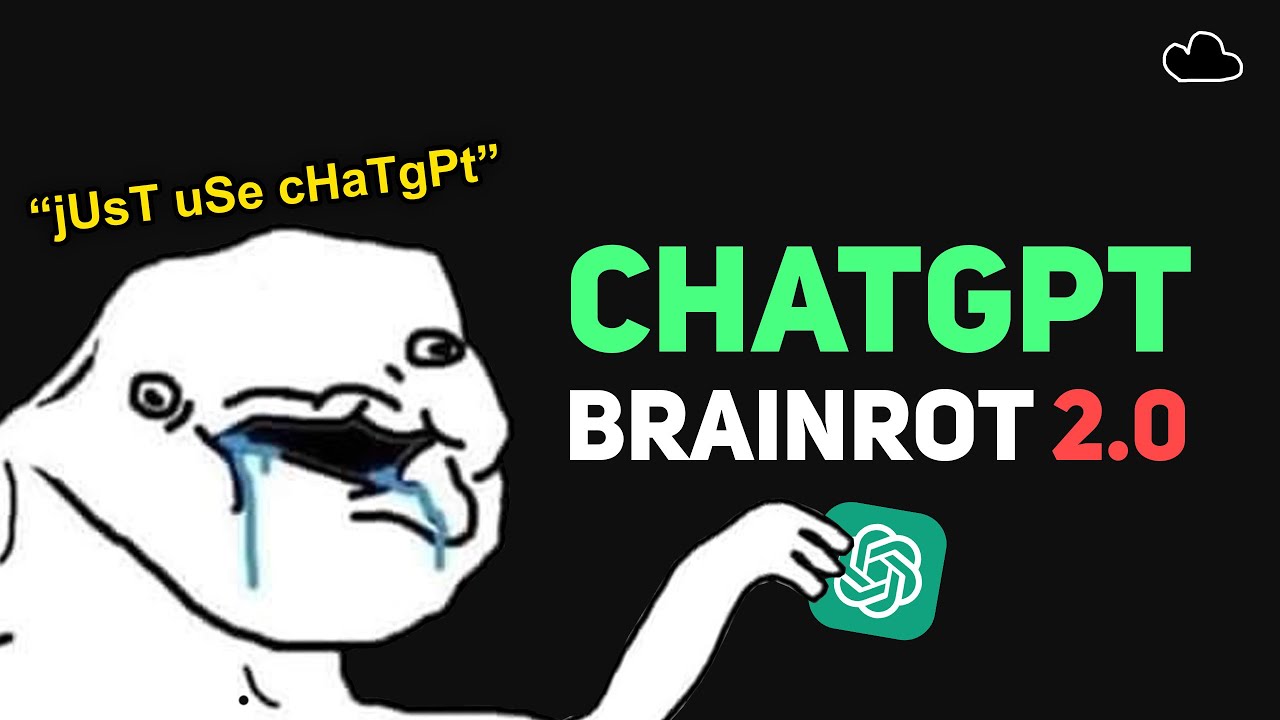The video discusses how excessive reliance on AI tools like ChatGPT, especially in educational settings, can impair memory retention and cognitive development, a phenomenon termed “cognitive debt,” supported by MIT research showing reduced brain connectivity and recall in AI users. It emphasizes the need for balanced and thoughtful integration of AI in learning to enhance rather than hinder critical thinking and durable knowledge formation.
The video explores the potential cognitive consequences of over-reliance on AI tools like ChatGPT, especially in educational contexts. It highlights concerns that excessive dependence on AI for tasks such as homework and interviews might impair our intelligence and learning abilities. Recent research from MIT provides empirical evidence supporting these concerns, showing that users who rely heavily on AI chatbots struggle to recall information they generated with AI assistance. This phenomenon, termed “cognitive debt,” suggests that outsourcing thinking to AI can weaken our brain’s ability to form durable memories and build complex mental connections.
The MIT study involved undergraduate students tasked with writing SAT-style argumentative essays, some using ChatGPT and others relying solely on their own cognitive efforts or Google search. Results showed that 83.3% of AI users could not recall exact sentences from their essays shortly after writing, compared to only 11% of those who wrote independently. Brainwave measurements revealed significant reductions in alpha and theta band connectivity among AI users, indicating diminished coordination between brain regions responsible for planning, monitoring, and memory formation. This neural evidence supports the idea that AI use can disrupt the mental processes essential for deep learning.
Further experiments in the study demonstrated that students who initially relied on AI experienced a decline in brain function and writing quality when AI assistance was removed, suggesting a short-term cognitive lag. Conversely, students who began without AI and later gained access showed improved brain connectivity and essay quality, implying that foundational cognitive skills developed without AI can be amplified by later AI use. These findings underscore the importance of how and when AI tools are integrated into learning processes, with early reliance potentially causing lasting negative effects on cognitive development.
Despite the compelling findings, the video emphasizes several caveats, including the small sample size and the focus on essay writing, which may not generalize to other cognitive tasks like coding or problem-solving. The research does not claim that AI inherently makes people less intelligent but rather that improper use can hinder cognitive growth. The video warns against simplistic interpretations and stresses the need for educational systems to adapt thoughtfully to AI’s growing role to avoid undermining learning outcomes.
In conclusion, the video presents AI as a double-edged sword: a powerful tool that can enhance productivity and cognitive abilities if used correctly but one that risks creating cognitive debt if over-relied upon prematurely. It calls for balanced AI integration in education to foster durable learning and critical thinking. The creator also promotes a newsletter for those interested in staying updated on AI research, highlighting the ongoing importance of understanding AI’s impact on human cognition.
